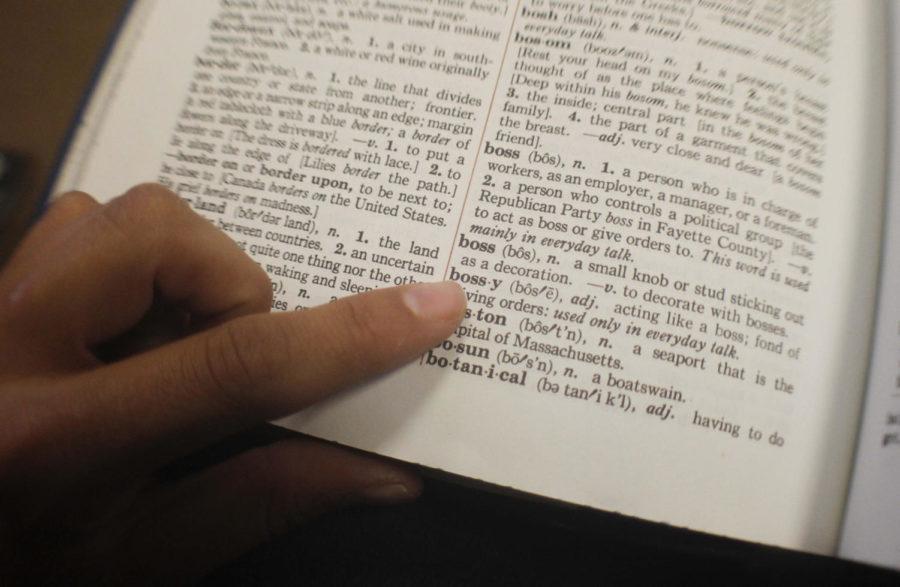Neuendorf: Everyone can grow up to be a leader
Tiffany Herring/Iowa State Daily
A new feminist campaign called #BanBossy, created by Facebook Chief Operating Officer Sheryl Sandberg and Anna Maria Chavez, the CEO of Girl Scouts of America, has hit the internet this past few weeks.
March 27, 2014
A new feminist campaign called #BanBossy headed by Facebook Chief Operating Officer Sheryl Sandberg and Anna Maria Chavez, the CEO of Girl Scouts of America, has hit the internet this past few weeks.
The purpose of the campaign, which is laid out in a public service announcement starring Beyoncé and Condoleezza Rice among others, is to stop calling little girls bossy, stubborn or pushy whenever they first begin exhibiting leadership skills. The fear is that being branded with this label will stunt girls’ ambition to succeed because they will forever link leading with being “bossy” or unlikable.
Typically, the word is sexist. It is used far more often on little girls than little boys, setting up the dangerous division between the sexes as early as kindergarten. We should be ashamed of how we have accepted the fact that boys are expected to be leaders while girls are expected to be submissive.
There is a slew of existing stereotypes towards girls that can be disheartening — apparently girls cannot lead, so eventually they begin to shy away from management roles, girls cannot prosper in math and sciences, so we see few girls majoring in fields like engineering and science. By now, we all know that as rubbish, however they have still latched onto the strings of our society.
Often, these feminist movements aim to encourage girls and to get boys to encourage girls. Sadly, boys usually miss their queue and the issues are primarily charged and lead by women. Feminism needs to start young and become less gender-specific and more about gender equality.
My experience with feminism is young. I am certain I not once heard the word when I was in elementary, and fairly sure that I never heard it in middle school and if I did, it did not make an impact. It was in the middle of high school when the concept finally reached me and I realized our media’s gender bias, the political inequalities and the privileges I had for being a boy in my interpersonal relationships.
I was aware of Susan B. Anthony, Elizabeth Cady Stanton and suffrage, of course, but it was distinctly glossed over in all my early history classes. When we are taught a male dominated history, of course girls are going to question their importance in society.
The sexism starts in grade school and follows us to the pinnacle of our careers, as evidenced by the Fortune 500 CEO list where only 23 females make up the 500 CEOs. Despite making up half of the population, this is all we have to show for it?
Back to the bossy, though. There are obvious times when the word is used not in a sexist manner — it is applied to someone, regardless of gender, who is being mean. But, clearly the ban is more on the concept than the word itself. This is a brilliant stepping-stone towards hopefully more elaborate steps our world will take to empower girls and to teach boys to empower girls.
First, the national curriculum: it would be beneficiary for everyone if as early as elementary school we had a specific class that explicitly taught civil rights, gender and racial issues, instead of it being incorporated occasionally and vaguely. Also, in these classes they could begin to dissect the ridiculous gender portrayals given to us by the media.
Why does feminism and official lessons on equality have to come so late in our education? Is it not fundamental? It is not traditionally academic, sure, but if we want to see the change we need, it should transcend academia. But we do not offer transcendental courses to first graders, so maybe a unit on feminism will do just fine.

















